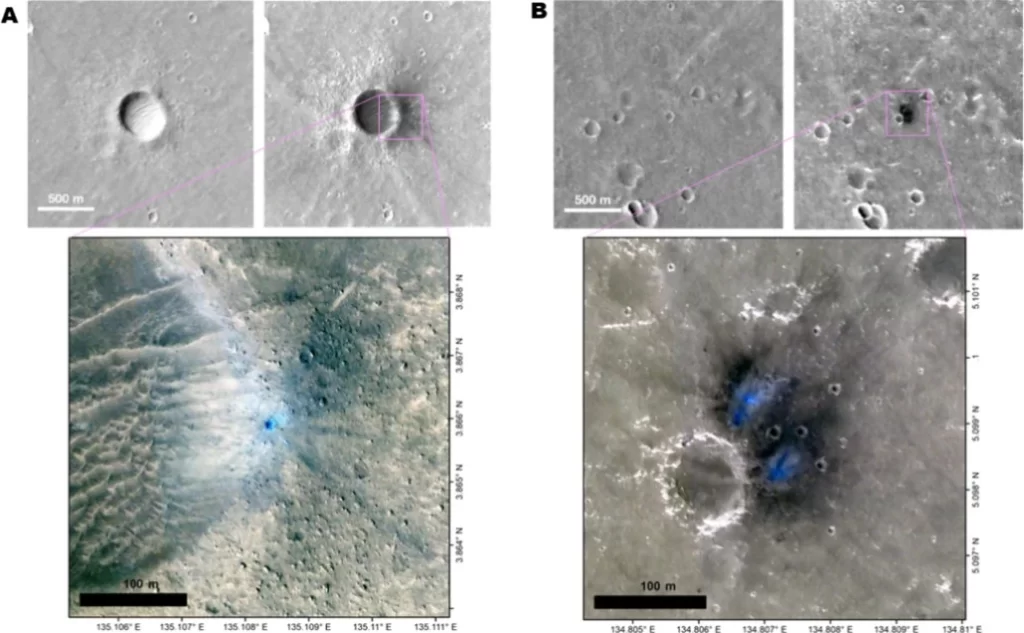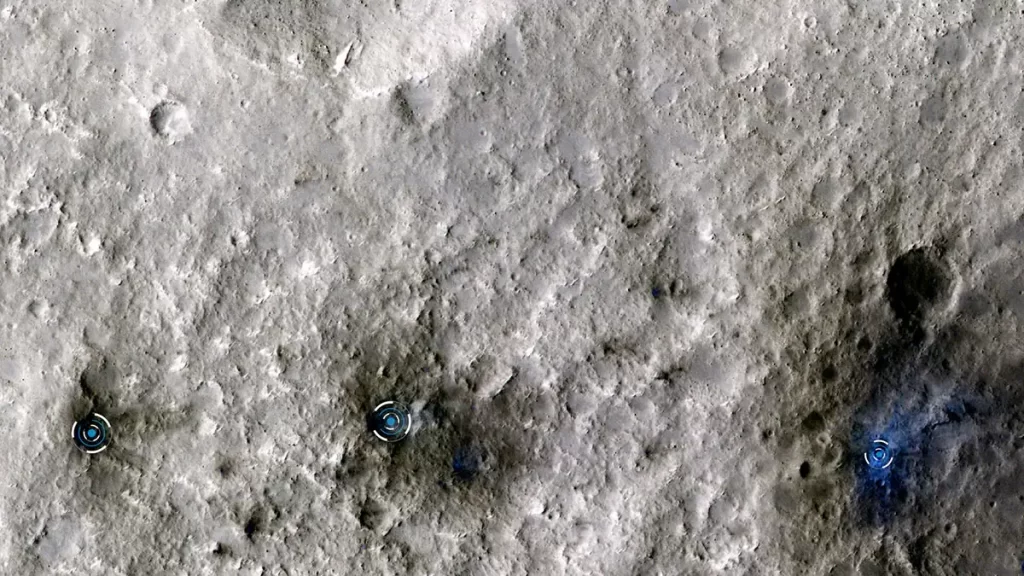A team of researchers utilizing data provided by NASA’s InSight mission has confirmed two new seismic events caused by meteoroid impacts on Mars, bringing the total number to 8. The study, employing a combination of seismic data and orbital imagery, has successfully pinpointed fresh impact craters, enhancing our understanding of Martian surface and atmospheric interactions.
The two newly confirmed seismic events are part of the very high frequency family and are characterized by distinct chirp signals, a type of dispersed infrasound or acoustic waves. These chirps have been crucial in locating and understanding the impacts. The study highlights the importance of extended mission phases for scientific discovery, as these recent confirmations were made possible during InSight’s second Martian year.
Notably, the first of these impact identifications involved analyzing an unusual seismic waveform followed by a chirp produced by the normal dispersion of acoustic waves generated by the impact.
These acoustic waves, slower than the seismic waves, allowed researchers to accurately calculate the distance to the source and the direction from which the waves came. Subsequent high-resolution imaging confirmed the presence of fresh impact craters at predicted locations, with diameters matching predictions to within a factor of three and timing consistent with the seismic events.
The confirmed impacts range from single craters to clusters of craters, with the latter including a cluster of five craters, the largest being 2.2 m (7.2 feet) in diameter.

The NASA InSight Mars Lander mission was officially retired in December 2022, after the lander ran out of energy.
The lander’s highly sensitive seismometer, along with daily monitoring performed by the French space agency Centre National d’Etudes Spatiales (CNES) and the Marsquake Service managed by ETH Zurich, detected 1 319 marsquakes, including quakes caused by meteoroid impacts.
InSight detected its first marsquake caused by a meteoroid impact on September 5, 2021. The impact took place in a region known as Elysium Planitia, between 85 and 290 km (53 – 180 miles) from the lander. After entering Mars’ atmosphere, the object exploded into at least three shards that each left a crater behind.


Images below were captured by Mars Reconnaissance Orbiter’s HiRISE camera.
After combing through data, scientists confirmed 5 other impacts — on May 27, 2020; February 18, 2021; August 31, 2021; September 18, 2021; and December 24, 2021.


In this new paper, two additional verified impacts were reported, both within 60 km (37 miles) of the lander — the first on October 23, 2021, and the second on March 2, 2022. Both impacts had their locations estimated using their acoustic chirps and were subsequently found by orbital imaging. This makes for a total of eight impacts seismically recorded by the InSight mission.
References:
1 Two Seismic Events from InSight Confirmed as New Impacts on Mars – Ingrid J. Daubar et al – 2023 Planet. Sci. J. 4 175 – DOI 10.3847/PSJ/ace9b4
2 NASA’s InSight ‘Hears’ Its First Meteoroid Impacts on Mars – Mars InSight Mission – September 19, 2022
3 NASA Retires InSight Mars Lander Mission After Years of Science – Mars InSight Mission – December 21, 2022
Featured image credit: NASA/JPL/MSSS/University of Arizona
If you value what we do here, create your ad-free account and support our journalism.
Study unlocks clues to tectonic plate behavior between major quakes
Friday, February 9, 2024
Research points to strong moonquakes from lunar faults, impacting future missions
Friday, February 9, 2024
New study revises the origin of continents without the need for plate tectonics
Wednesday, February 7, 2024
Introduction of Oceanic Mid-plate Superstructures (OMS) in volcanic studies
Friday, January 19, 2024
New insights reveal Earth’s inner core exhibits 8.5-year wobble
Sunday, January 7, 2024
Research reveals Hunga Tonga’s eruption caused an unexpectedly large loss of ozone
Sunday, January 7, 2024
Study of Iceland volcano eruption reveals new insights into volcanic fountaining
Sunday, December 3, 2023